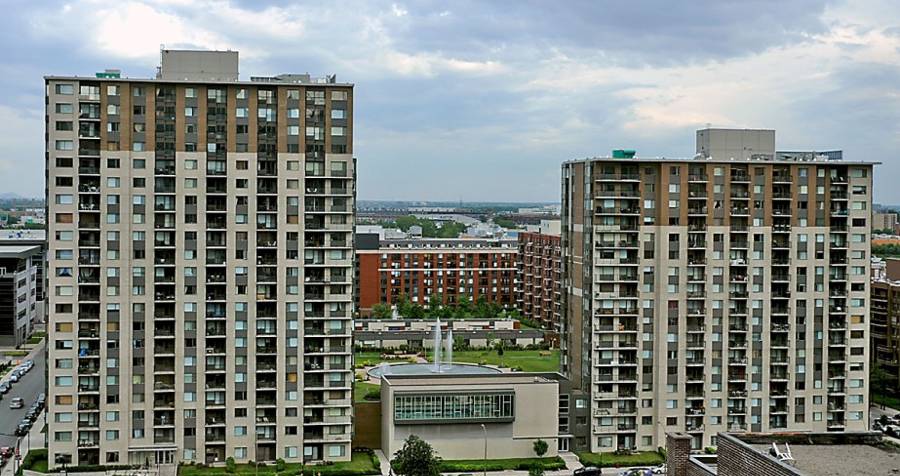Major Ruling in Divided Co-Ownership: Court Orders Dismantling of Unauthorized Telecom Antennas
A clear reminder: the common areas of a co-ownership property cannot be used for commercial purposes without consent.

News
A recent decision by the Superior Court of Québec, rendered on June 17, 2025, serves as a strong reminder of the importance of complying with co-ownership declarations and the rules governing the use of common areas within a divided co-ownership property.
The Context: A Dispute Between Syndicates in the Same Complex
The case involves two syndicates within the same residential complex in Montreal’s Griffintown neighbourhood. The Jardins Windsor complex includes approximately 650 units across multiple phases. Overall management is provided by the Syndicat Jardins Windsor Phase Horizontale (also referred to as the Horizontal Syndicate), while each phase has its own co-ownership syndicate and a Concurrent Declaration of Co-Ownership (DCC). All syndicates are also bound by a Master Declaration of Co-Ownership (DCI).
In 2023, the Syndicat Jardins Windsor Phase III (the defendant syndicate) entered into commercial lease agreements with Telus and Vidéotron—without prior authorization from the Horizontal Syndicate—allowing the installation of telecommunications equipment on common areas (rooftop, exterior walls, technical spaces).
Antennas Deemed Incompatible with the Residential Purpose of the Building
Represented by the law firm Dunton Rainville, the Horizontal Syndicate sought an injunction requiring the removal of all installations. It argued that:
-
The commercial leases violated both the DCI and DCC;
-
The installation of nine large antennas (12 to 15 feet tall) and supporting equipment significantly altered the building’s appearance;
-
The equipment was not intended to serve co-owners but rather an external clientele;
-
This commercial use was inconsistent with the building’s exclusive residential purpose.
A Clear Decision on the Rights and Duties of Syndicates
In her decision, the Honourable Justice Silvana Conte sided entirely with the Horizontal Syndicate. The Court concluded that:
-
The agreements with Telus and Vidéotron were invalid under both the Master and Concurrent Declarations of Co-Ownership;
-
The installations disrupted the architectural appearance of the building, in violation of the harmony servitude;
-
The antennas served commercial purposes rather than benefiting the co-owners;
-
Syndicates of co-owners are non-profit organizations and cannot seek profit contrary to the building’s intended use.
A Ruling with Educational Value for the Co-Ownership Sector
This ruling serves as an important reminder: in a phased co-ownership property, syndicates of individual phases remain bound to the Master Declaration. The decision reinforces the legal weight of co-ownership declarations and confirms that the purpose of the building—in this case, strictly residential—is a foundational element of the co-ownership regime. It also emphasizes that common areas cannot be used for commercial purposes without the consent of all relevant syndicates. Finally, it highlights the structuring role of the harmony servitude, which ensures visual and architectural consistency across the phases of a complex.
A Legal Victory Backed by a Specialized Team
The RGCQ recognizes the rigorous work of attorneys Me Alain Chevrier, Me Alexandre Fournier, Me Yves Joli-Cœur, and Me Alex Laplante of Dunton Rainville, who successfully represented the Horizontal Syndicate. Their involvement demonstrates the value of expert legal counsel in co-ownership matters, particularly in complex, multi-phase property disputes.
To read the full judgment [in French only]: Syndicat Jardins Windsor Phase Horizontale v. Syndicat Jardins Windsor Phase III, Telus Communications Inc., and Vidéotron Ltée.
Login to view this content
Become a member
Access all our services and a vast network of experts by becoming a member of the RGCQ.